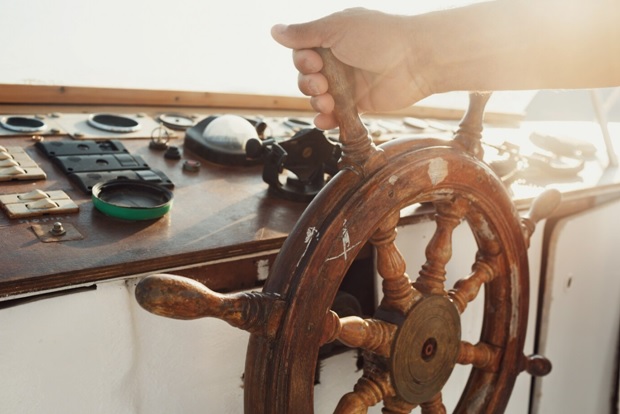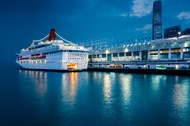Crossing Oceans: Why Marine Electrical Wire is Needed in Long-Distance Cruising
25th Dec 2023
You’re about to set sail on a long-distance ocean adventure. While there are a lot of things that go into preparing a vessel for such a cruise, one thing that should definitely be given attention is the network of marine electrical wires that lies beneath the surface, powering your yacht's journey, safety, and all the luxuries that make your voyage memorable.
This adventure, after all, is impossible without the reliability of marine electrical systems, which connect, energize, and ensure safety during long-distance cruising. The question is, are your marine electrical wires up to the task?
Equipment that Require and Make Use of Marine Electrical Cables
Think about those long-distance ocean cruises, where various equipment relies on marine electrical cables to function effectively. These cables serve as the vital arteries of your vessel's electrical system, providing power to essential equipment. Some of the equipment that depends on marine electrical cables includes:
- Navigation Systems: GPS units, chartplotters, and radar systems all require stable power supplies provided by these cables to ensure accurate navigation during long cruises.
- Communication Devices: Radios, satellite communication systems, and onboard internet connectivity devices are essential for staying connected while at sea. Marine electrical cables power and facilitate the use of these devices.
- Safety Equipment: Yachts are equipped with critical safety systems, such as fire alarms, smoke detectors, and emergency lighting. Marine electrical cables ensure these systems are operational, providing peace of mind during long cruises.
- Luxury Amenities: For a comfortable journey, luxury amenities like air conditioning, heating, entertainment systems, and refrigeration units rely on marine electrical cables for power.
- Propulsion Systems: Modern yachts often feature advanced electrical propulsion systems. Marine electrical wires connect the batteries to the propulsion units, ensuring smooth sailing even on long journeys.

Marine Electrical Cables: The Lifeline of Ocean-Going Vessels
Back in the day, sailing didn’t need complicated electronics and equipment. However, as nautical technology developed and progressed, the help that they brought was exponential. These days, what with all the crazy weather, staying connected with the rest of the world at sea is not just a luxury but a necessity.
As we’ve established, marine electrical wires ensure that communication systems, navigation equipment, and satellite connections remain operational. They form the lifeline, keeping mariners in touch with shores and other vessels. In the unpredictable world of the sea, this connectivity is essential for safety and coordination.
Choose Electrical Cables Constructed for Harsh Marine Environments
Long-distance cruising exposes vessels to some of the most challenging environmental conditions on the planet. From saltwater corrosion to extreme temperatures, marine electrical wires are designed to endure it all.
The insulation and materials used in these cables are specifically chosen for their ability to withstand the harshest marine environments. They must keep performing under constant exposure to moisture and the corrosive effects of seawater.
Choose Cables that Are Reliable in the Face of Challenges
Long-distance cruising vessels often have high electrical demands. They must be capable of supporting navigation systems, autopilots, radar, GPS, refrigeration, and much more. Marine electrical wires are specifically designed to handle these high demands, ensuring that critical systems run smoothly even in the most challenging conditions.
Troubleshooting Electrical Issues at Sea
Long cruises can present electrical challenges. Knowing how to troubleshoot common electrical problems can be a lifesaver. Here are some typical issues experienced at sea and how to address them:
- Flickering Lights: Flickering lights can indicate loose connections. Ensure all connections are secure. If the problem persists, it may be a sign of an electrical short and should be investigated.
- Dead Batteries: Check for disconnected or damaged cables and verify the charge status of your batteries. Have a backup power source available to avoid being stranded.
- Loss of Navigation Systems: If navigation systems fail, assess the power source. Verify connections and fuses. Having redundant navigation systems or charts as a backup is wise.
- Corrosion: Corrosion can affect electrical connections. Use a wire brush and corrosion inhibitors to clean connections. Consider investing in marine-rated electrical components to prevent future corrosion.
 Maintenance Tips for Marine Electrical Systems
Maintenance Tips for Marine Electrical Systems
Proper maintenance of marine electrical systems is crucial for their performance and longevity. Here are some practical tips for yacht owners to maintain and care for their marine electrical systems:
- Regular Inspection: Periodically inspect all connections, cables, and electrical components for signs of wear, corrosion, or damage. Address any issues promptly.
- Corrosion Prevention: Marine environments are harsh and can lead to corrosion. Use corrosion-resistant materials and apply protective coatings where necessary.
- Secure Cable Runs: Ensure that marine electrical cables are properly secured and routed to prevent chafing or damage from vibration during the voyage.
- Keep Connections Clean: Clean electrical connections to prevent corrosion. Apply dielectric grease to terminals and connectors to repel moisture.
- Battery Maintenance: Yachts rely on batteries for various functions. Regularly check and maintain your batteries, ensuring they are charged, properly secured, and free of corrosion.
Sailing on the Waves of Reliability
Long-distance cruising represents a journey into the unknown, with the vessel's systems, crew, and passengers depending on the reliability of marine electrical wires.
So, the next time you embark on a long-distance cruise, make sure the double-check and maintain those marine electrical wires that silently ensure your voyage remains safe, comfortable, and connected. And if you’re looking for replacement wires, feel free to check out our catalog for quality replacements.

